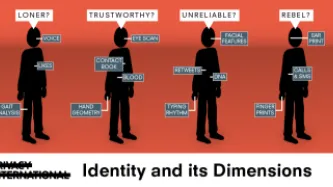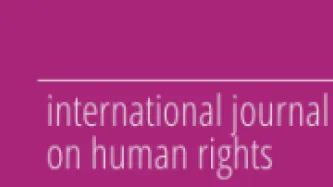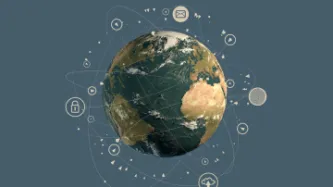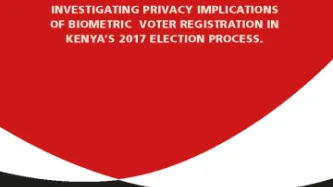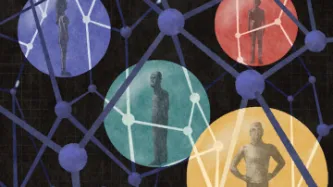Advanced Search
Content Type: News & Analysis
Photo Credit: Marion S. Trikosko
This month, the World Bank's Identity for Development (ID4D) initiative is launching its inaugural "Mission Billion Challenge", a competition designed to promote innovation in the identity space with the inaugural question: "How can digital identification systems in developing countries be designed to protect people’s privacy and provide them with greater control over their personal data?” But make no mistake: introducing "privacy by design" does…
Content Type: Long Read
Image attribution: By Legaleagle86 at en.wikipedia, CC BY-SA 3.0.
In a long-anticipated judgment, the Indian Supreme Court has ruled that India's controversial identification system Aadhaar is Constitutional. They based their conclusion on notes that there are sufficient measures in place to protect data, and that it is difficult to undertake surveillance of citizens on the basis of Aadhaar.
But there is some good in this ruling. The court has demanded that the Government introduce…
Content Type: Long Read
Who are you? The Challenges of Identity and Identification
“Identity” is a word that covers an incredible range of contested, deeply personal and highly politicised questions. These range from the political and the sociological, through to the psychological and philosophical. A question such as “who are you?” can elicit a multiplicity of responses, none of which are straightforward, are sometimes highly contextual, and are often deeply contested.
However, there is something of an attempt to…
Content Type: Long Read
The Sustainable Development Goals (SDGs) are the United Nations-led initiative to define the development agenda. Building on the eight Millennium Development Goals, the SDG’s 17 goals – and the 169 targets – serve as an opportunity to tackle many of the most pressing issues in the world today. The SDGs are also explicitly grounded in human rights. Goal 16 on “peace, justice, and sustainable institutions” aims to “Promote peaceful and inclusive societies for sustainable development, provide…
Content Type: News & Analysis
Photo was found here
This essay was published in The Sur International Journal of Human Rights, Issue 27, July 2018.
Abstract:
This essay focuses on elections in Kenya and analyses the use of technology and the exploitation of personal data in both the electoral process and campaigning. We only need to look to Kenya’s election history to understand why it is important. The 2007/2008 election resulted in violence that killed over 1,000 people and displaced over 600,000. The 2013 election was…
Content Type: Long Read
Yesterday the UK's Information Commissioner's Office (ICO) - which is responsible for ensuring people's personal data is protected - announced it intends to fine Facebook the maximum amount possible for its role in the Cambridge Analytica scandal.
This decision highlights of how serious and rampant misuse and exploitation of data is. Facebook is responsible and failed to comply with data protection 101: be upfront and honest about what you are doing with people's data.
Importantly, the ICO's…
Content Type: News & Analysis
This piece originally appeared here.
We are much more than our physical selves. We are also digital. Every moment we generate more data. Although sometimes this data is under our control, increasingly it is not. This uncontrolled data—this metadata—is often generated as a result of our interactions, movements, sentiments, and even our inaction. Despite being beyond our control, our metadata is still accessible to many. Hardly a day goes by without a news story or global event involving data: a…
Content Type: Press release
Today, as the Data Protection Bill reaches its final stages, Privacy International has written to the leaders of the main UK political parties asking for public commitment to not use the exemption provided in the Bill to target voters - both online and offline - in all local and national forthcoming elections or by-elections.
Privacy International has long been concerned about the exploitation of peoples’ data and the opaque data ecosystem, and the impact of such practices on the democratic…
Content Type: Report
The use of biometric technology in political processes, i.e. the use of peoples’ physical and behavioural characteristics to authenticate claimed identity, has swept across the African region, with 75% of African countries adopting one form or other of biometric technology in their electoral processes. Despite high costs, the adoption of biometrics has not restored the public’s trust in the electoral process, as illustrated by post-election violence and legal challenges to the results of…
Content Type: Examples
In February 2018 the Home Office gave the Yorkshire Police 250 scanners that use a smartphone app to run mobile fingerprint checks against the UK's criminal fingerprint and biometrics database (IDENT1) and the Immigration and Asylum Biometrics System (IABS). The app was simultaneously made available to all 5,500 frontline Yorkshire Police officers, with a plan to roll the service out to another 20 forces by the end of 2018. Police are able to use the scanners when people they stop on the street…
Content Type: Examples
In 2012, London Royal Free, Barnet, and Chase Farm hospitals agreed to provide Google's DeepMind subsidiary with access to an estimated 1.6 million NHS patient records, including full names and medical histories. The company claimed the information, which would remain encrypted so that employees could not identify individual patients, would be used to develop a system for flagging patients at risk of acute kidney injuries, a major reason why people need emergency care. Privacy campaigners…
Content Type: Long Read
In December 2017, Privacy International published an investigation into the use of data and microtargeting during the 2017 Kenyan elections. Cambridge Analytica was one of the companies that featured as part of our investigation.
Due to the recent reporting on Cambridge Analytica and Facebook, we have seen renewed interest in this issue and our investigation. Recently in March of 2018, Channel 4 News featured a report on micro targeting during the 2017 Kenyan Presidential Elections, and the…
Content Type: Long Read
The ongoing Facebook and Cambridge Analytica scandal is a wake-up call for UK policy-makers who too often encourage and promote digital industries over the protection people’s personal data. The scandal has shown that the public is concerned by companies’ exploitation of their data. The current lack of transparency into how companies are using people’s data is unacceptable and needs to be addressed.
Reform should not be limited to the behaviour of individual companies. Consumers are confronted…
Content Type: Long Read
Over the past few days we've all learned details about how Cambridge Analytica was able to amass data on voters through the use of an app that would gather data on approximately 50 million Facebook users, including 30 million psychographic profiles.
This is three stories in one.
Yes, this is another story of data that has been exploited for political advantage, again. Political parties and governments continue to want access to social media intelligence and continue to develop profiles…
Content Type: News & Analysis
This post was written by PI Policy Officer Lucy Purdon.
In 1956, US Presidential hopeful Adlai Stevenson remarked that the hardest part of any political campaign is how to win without proving you are unworthy of winning. Political campaigning has always been a messy affair and now the online space is where elections are truly won and lost. Highly targeted campaign messages and adverts flood online searches and social media feeds. Click, share, repeat; this is what political engagement looks…
Content Type: Long Read
The battle for Kenyan voters’ allegiance in the 2017 Presidential election was fought on social media and the blogosphere. Paid advertisements for two mysterious, anonymous sites in particular started to dominate Google searches for dozens of election-related terms in the months leading up to the vote. All linked back to either “The Real Raila”, a virulent attack campaign against presidential hopeful Raila Odinga, or Uhuru for Us, a site showcasing President Uhuru Kenyatta’s accomplishments. As…
Content Type: Case Study
Political campaigns around the world have turned into sophisticated data operations. In the US, Evangelical Christians candidates reach out to unregistered Christians and use a scoring system to predict how seriously millions these of voters take their faith. As early as 2008, the Obama campaign conducted a data operation which assigned every voter in the US a pair of scores that predicted how likely they would cast a ballot, and whether or not they supported him. The campaign was so confident…
Content Type: News & Analysis
This Sunday is International Women's Day. You could celebrate the considerable progress in legislating for women's equal rights. You could join a protest against political and legal inequality, discrepancies in women's access to healthcare, education and other social goods. You could thank your mom for delivering you.
Here at Privacy International, we want to commemorate the importance of this day by looking at some of the ways surveillance technologies can be used to control women and how the…
Content Type: News & Analysis
Privacy International today is proud to announce our new project, Aiding Privacy, which aims to promote the right to privacy and data protection in the development and humanitarian fields. Below is an outline of the issues addressed in our new report released today, Aiding Surveillance.
New technologies hold great potential for the developing world. The problem, however, is that there has been a systematic failure to critically contemplate the potential ill effects of deploying technologies in…




